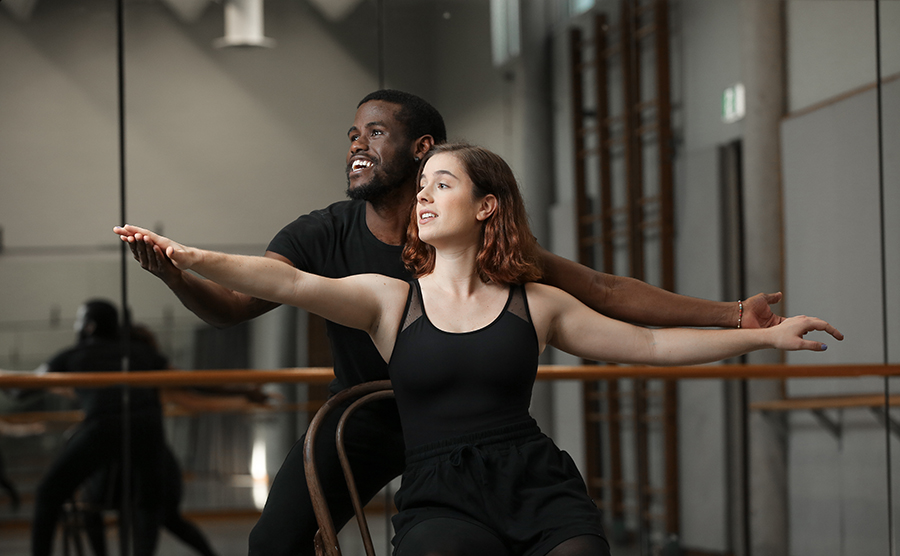The journey from amateur practice to a professional career in the performing arts is different for everyone. While some artists accrue plentiful opportunities at a relatively young age, others may feel they lack the experience necessary to hone their natural talents, a shortfall preventing them from following their dreams.
Dedicated training programs such as those offered by the National Institute of Dramatic Arts (NIDA) can ‘help bridge the skills gap’ between someone’s real-world experience and future ambitions, explains Gillian Meisner-Lemon, the Head of NIDA Open.
‘Our Studio programs are classed as pre-professional training, and are aimed at people who are definite that they want to train professionally in the performing arts, but perhaps they feel like they’re not quite ready to take on that training at a higher education level,’ Meisner-Lemon explains.
Such learning is undertaken in a safe and supportive environment, she continues. ‘It’s about creating a space where people feel safe to try new things and fail gloriously, because you learn by making mistakes. I encourage students to try different things, because if they don’t, they’re not going to learn anything.’
Covering a range of disciplines, including acting, singing, directing and writing, NIDA Studios are taught with the same professional rigour as the institution’s Bachelor of Fine Arts (BFA) courses – often by the same teachers.
‘I write the Studio program and I also teach in the BFA program, and a lot of the tutors who teach the performance-based Studios also teach on the BFA program, so we’re really working at that [professional] level – to ensure that the students are beginning to cultivate the vocabulary that is used in full-time training,’ says Meisner-Lemon.
Available in Sydney, Brisbane and Melbourne, and with new courses commencing in February, NIDA Studios cater for young people aged 15 to 18, as well as for adults 18 and over. Classes are delivered on weekends over periods of six months or 12 months respectively.
Importantly, NIDA Studios cater for the truly committed, as compared to more traditional short courses that may be aimed at people who are just starting out in the performing arts.
‘It’s not the kind of program where people come along on a Saturday and the next time they think about it is whenever they walk in the door the following Saturday,’ Meisner-Lemon explains.
‘There’s work that needs to be done from week to week and there are online forums where the students share information or teachers share extended learning activities with them … so they are more connected with the NIDA community than someone who would be coming in and doing a five-day short course or a one-term short course.’
Participants in NIDA Open Studios often go on to further studies in the performing arts; others use the skills they’ve learned to enhance their existing careers.
‘Of course it’s not just young people who come and do these Studios; sometimes it’s older people in their 30s and 40s who come along, because they’re looking for a change in direction … And we find some people go on to further training or they take those skills that they’ve learned to reinforce the practice that they are already involved in. For example, someone who went on to be a director at Monkey Baa Theatre Company had completed our Directors Studio some years ago,’ says Meisner-Lemon.
Regardless of the art form it is focused upon, each NIDA Open Studio aims to reflect the broader ethos of NIDA and its approach to training.
‘We aim to create ensembles of people working together, people who are passionate about collaboration,’ Meisner-Lemon explains.
‘There’s also a lot of variety in there, so no term is ever the same, and if you think of each term as a building block, we’re adding a new skill each time.’





